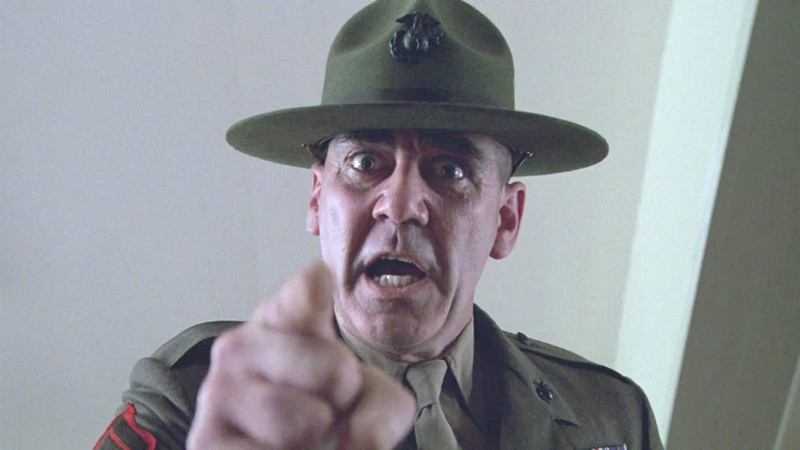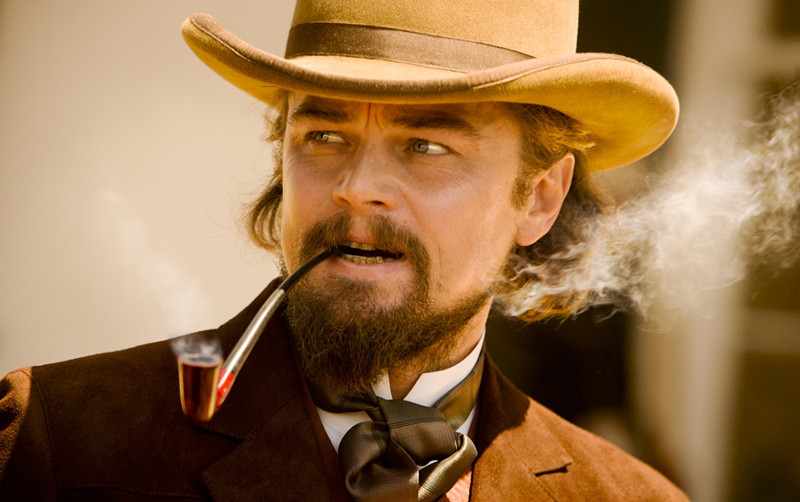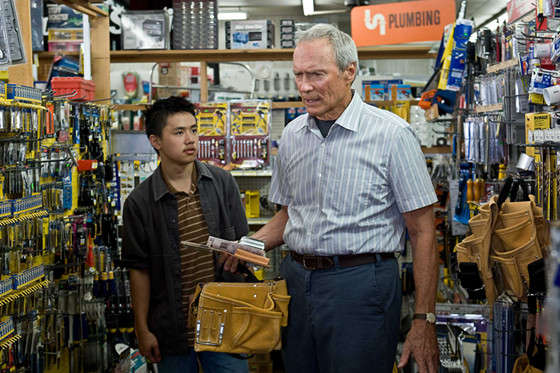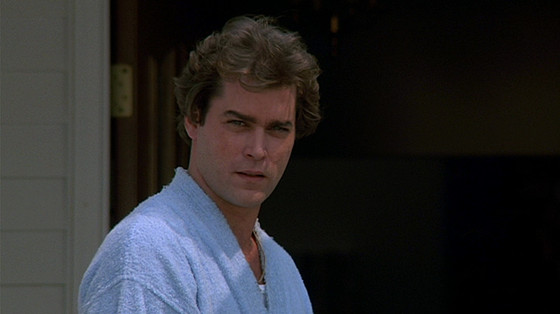5. Boogie Nights

Unlike other dramedies that use out of place jokes and random events for comedic purposes, Boogie Nights plays the long game: a multi-contextual setup for which the film is the punchline. This concept is easier executed in Boogie Nights, wherein the plot is insane to begin with. Following porn star Dirk Diggler through his rise and fall in the industry, the film weaves tattered strings of lavish hedonism into an absurd but poignant whole, producing laugh out loud moments and thoughtful ruminations all at once.
Take the scene with the botched drug deal. Dirk, Reed, and Todd visit Alfred Molina’s drug dealer character with the intent of ripping him off with fake product. However, things get so wacky off the bat that the soundness of the plan is quickly doubted by the hopeful thieves.
The dealer is out of his mind, singing 80s pop hits and rattling off non sequiturs, while a Chinese boy lights firecrackers in the background for no discernible reason. The trio tries to keep their cool but this becomes impossible as the drug-fueled mania becomes unbearable. Dirk echoes our thoughts in a now-famous camera staredown in which he contextualizes the situation and sees what his life has become. The absurd calls his name, and the answer breaks his trance and leads to Dirk and Reed, after a few small hiccups, escaping with their lives.
Other scenes, like the record producing sequence and Philip Seymour Hoffman’s repressed lust are also extremely funny, but express an underlying hopelessness. This duality of storytelling makes Boogie Nights not only one of the funniest non-comedies but one of the greatest movies, and solidified Paul Thomas Anderson as a subversive mastermind.
4. Full Metal Jacket

Much of Full Metal Jacket’s humor comes from one character: The Drill Sergeant. In a scene that is now cinematic legend, R. Lee Ermey, at the rare behest of director Stanley Kubrick, improvised a barrage of creative insults toward the deer-in-the-headlights recruits over whom his character presides.
Such lines as “the best part of you ran down the crack of your mama’s ass and ended up as a brown stain on the mattress” and ‘I bet you’re the kind of guy that would fuck a person in the ass and not even have the goddamn common courtesy to give him a reach-around” are launched at the soldiers during introduction, employed to weaken any remnants of defiance.
All throughout basic training he runs the recruits through physical and verbal obstacle courses, the latter of which prove harder to conquer thanks to the sergeant’s unmatched wit. Even the chants he leads are awe-inspiring. Who knew “Eskimo pussy is mighty cold”?
But the Ermey scenes aren’t the sole sources of comedy. Full Metal Jacket’s grim outlook is insulated with satiric and silly humor, from Private Pyle’s antics to the bizarre song choices to the prostitute’s dialogue to impromptu karate. Even the ending, with the soldiers marching in the fiery wreckage of an “emancipated” village and singing the Mickey Mouse Club theme song, presents a hilarious dichotomy which highlights the absurd marriage of war and peace.
3. Django Unchained

Django Unchained is probably the most consistently funny Tarantino movie despite no official recognition as a comedy. The reason may be that, like other Tarantino films, the humor is forgotten amid the horrifying displays of violence and torturously extended moments of tension. Thoughts of slavery, sadistic plantations owners, and mandingo fighting don’t exactly get the balls of whimsy rolling. However, one only has to resurrect the parts of its sum to recognize the comedic value.
Being that Django Unchained is a revisionist western and modern blacksploitation film, most of the action and dialogue are exaggerated for satiric purposes. Also, the characters are more like caricatures to portray well-understood figures of the antebellum era. Sam Jackson’s Uncle Tom stereotype is purposefully parodic as well as hilarious; the scene with the Australian slavetraders is soaked in irony; and most of the Southern townspeople are comedic foil for the main characters.
However, nothing beats the portrayal of the KKK. Mobilized for the apprehension of Django, the racist riders lament the misplacement of the eye holes in their hoods. Jonah Hill, in an unprecedented cameo appearance, leads the brigade of complainants as the group becomes increasingly flustered, forgetting their task at hand. Django Unchained is an eccentricized historical drama, and it’s not hard to see the benefit of the humorous treatment of a sore subject.
2. Gran Torino

Here is a movie that’s overshadowed by its main character. Gran Torino, though a solid film in its own right, is more famous for Clint Eastwood’s slurs than for any actual thematic qualities (In fact, a YouTube video compiling all of Clint’s insults has more views than any given scene). But there’s a good reason for this: it’s hilarious.
Eastwood’s character Walt hurls such an assortment of creative and antiquated insults towards his black, white, and Asian co-stars that it’s impressive he doesn’t run out. Most of his chosen epithets had not been heard for 50 years, so the linguistic vulgarity is aided by variety to produce gut-busting results. The timing of Walt’s digs rival any great comedian as he fires them indiscriminately like a Comedy Central roaster.
But it’s all in good fun; Walt has a heart of gold, and he ends up saving the community he so disparaged. It’s like watching your out-of-touch grandpa. You know what he says is wrong but you have to laugh.
1. Goodfellas

“I’m gonna go get the papers, get the papers,” is the line that defines Goodfellas’ humor. Said by Jimmy Two Times—named because he says everything two times—while Henry Hill is introducing characters in the lounge, the humor of this line is not immediately apparent, but as one immerses oneself in the subtleties of the mafia and Martin Scorsese’s understated writing, the comedy becomes forefront to violence.
Henry Hill’s expose on mob dealings was the perfect source material for sharpening one’s acerbic screenwriting. Goodfellas’ idiosyncratic humor is one that only the sadism and misanthropy of the mob can facilitate. It’s funny and scary seeing people laugh at things that would make us vomit; treating people as objects exploited for monetary gain that can be discarded once expended. But, strangely enough, it’s also endearing.
To watch such single-minded oafs doing the only thing they know how, but lacking the self-awareness to understand the gravity of their behavior, gives us a feeling of superiority over those who could kill us; we can laugh at them from the safety of our homes. This enables scenes of absurd duality reminiscent of those in No Country for Old Men but perfected in Goodfellas: Tommy shooting at Spider’s feet while pantomiming a Wild West character; the gangsters making a gourmet feast in prison; and of course the confrontation between Tommy and Henry over the word “funny.”
The absolute funniest scene is the one with Tommy’s mother. With the presumably dead body of Billy Batts in the trunk, Henry, Jimmy, and Tommy travel to Tommy’s mother’s house in the dead of night to borrow a shovel to bury the corpse. However, his mother wakes and sidelines the process by forcing all to sit down for an impromptu meal. She then produces, out of nowhere, a painting of a man sitting with two dogs in a boat, and the mobsters wax on the painting’s merits.
This conversation may be the greatest dialogue ever written, and shows Scorsese to have the comedic precision and artistic certainty to eschew plot development for realism. The dog painting and Pesci’s enthusiastic review of the piece do not have any relevance to the overall story, but are some of the funniest moments ever captured on film.